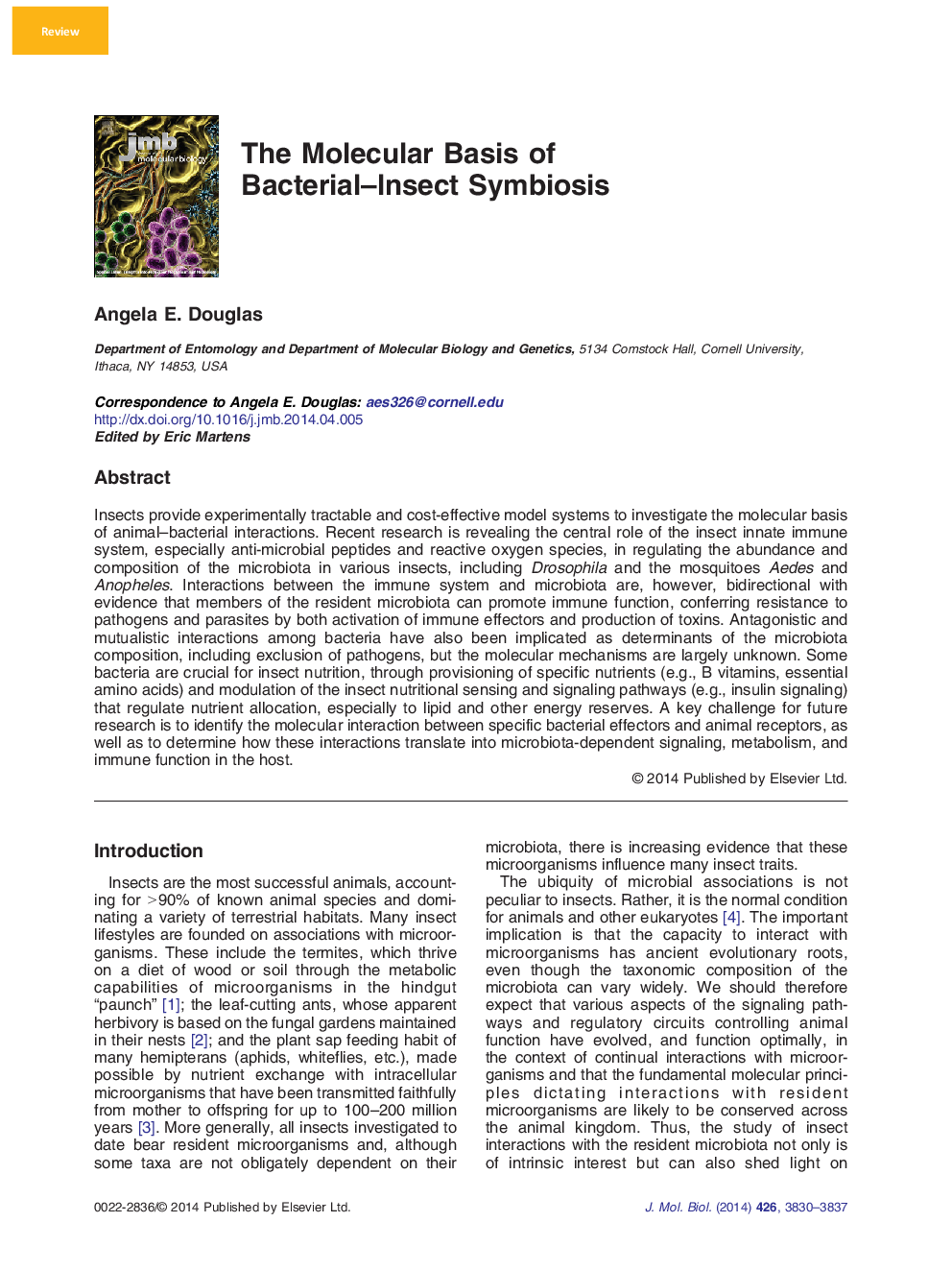| Article ID | Journal | Published Year | Pages | File Type |
|---|---|---|---|---|
| 2184397 | Journal of Molecular Biology | 2014 | 8 Pages |
•Insects, like other animals, are colonized by benign and beneficial microorganisms.•Insect immune factors affect the composition and abundance of the microbiota.•Microbial effectors can both promote and complement host immune function.•Microbiota provides nutrients and modulates insect nutrient allocation patterns.
Insects provide experimentally tractable and cost-effective model systems to investigate the molecular basis of animal–bacterial interactions. Recent research is revealing the central role of the insect innate immune system, especially anti-microbial peptides and reactive oxygen species, in regulating the abundance and composition of the microbiota in various insects, including Drosophila and the mosquitoes Aedes and Anopheles. Interactions between the immune system and microbiota are, however, bidirectional with evidence that members of the resident microbiota can promote immune function, conferring resistance to pathogens and parasites by both activation of immune effectors and production of toxins. Antagonistic and mutualistic interactions among bacteria have also been implicated as determinants of the microbiota composition, including exclusion of pathogens, but the molecular mechanisms are largely unknown. Some bacteria are crucial for insect nutrition, through provisioning of specific nutrients (e.g., B vitamins, essential amino acids) and modulation of the insect nutritional sensing and signaling pathways (e.g., insulin signaling) that regulate nutrient allocation, especially to lipid and other energy reserves. A key challenge for future research is to identify the molecular interaction between specific bacterial effectors and animal receptors, as well as to determine how these interactions translate into microbiota-dependent signaling, metabolism, and immune function in the host.
Graphical AbstractFigure optionsDownload full-size imageDownload high-quality image (180 K)Download as PowerPoint slide
